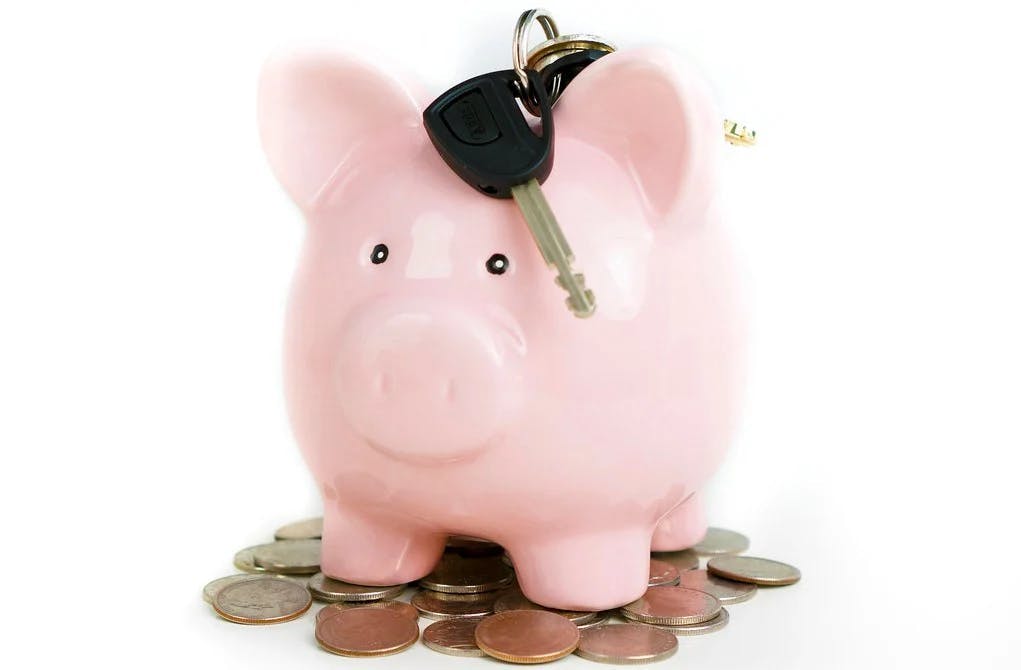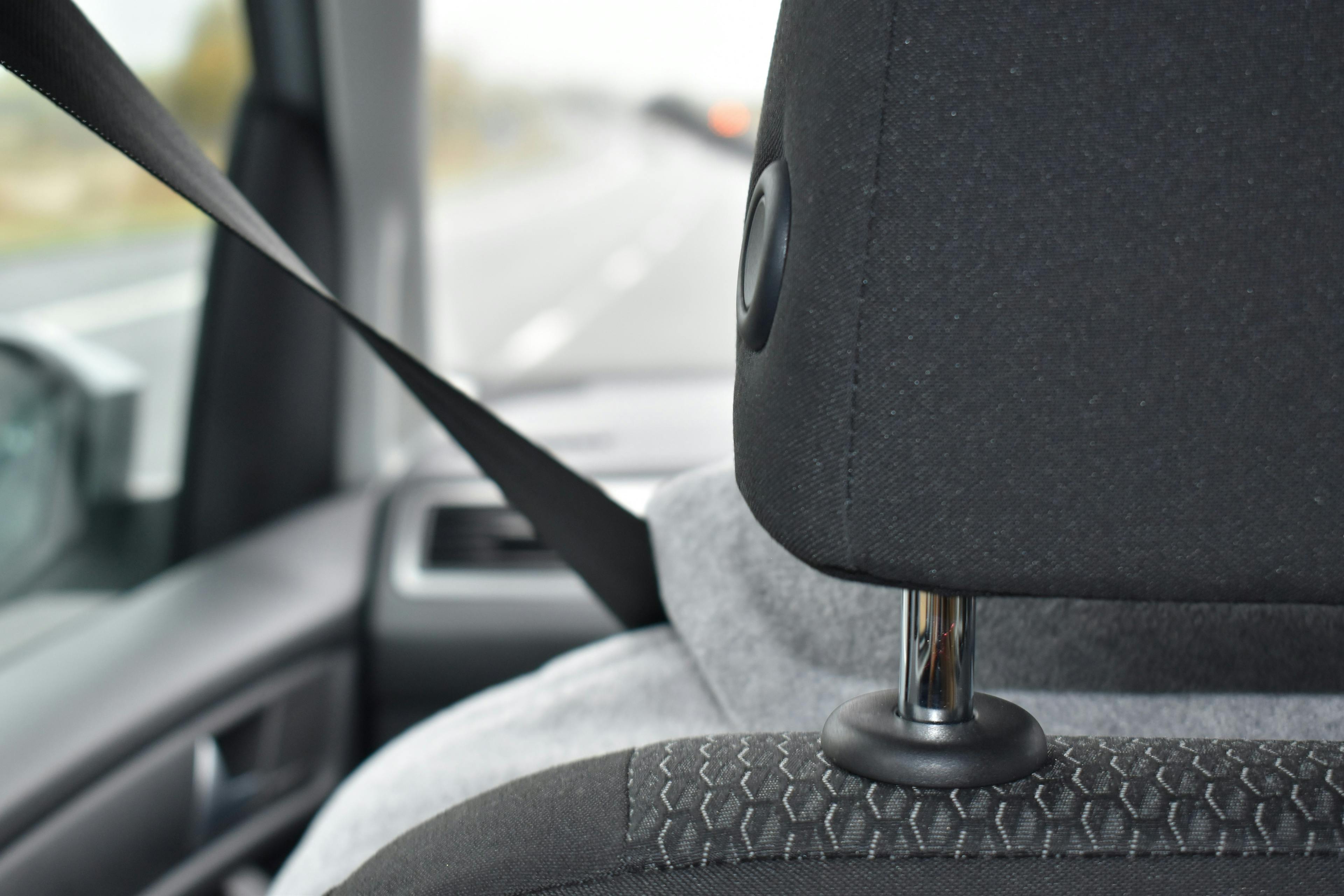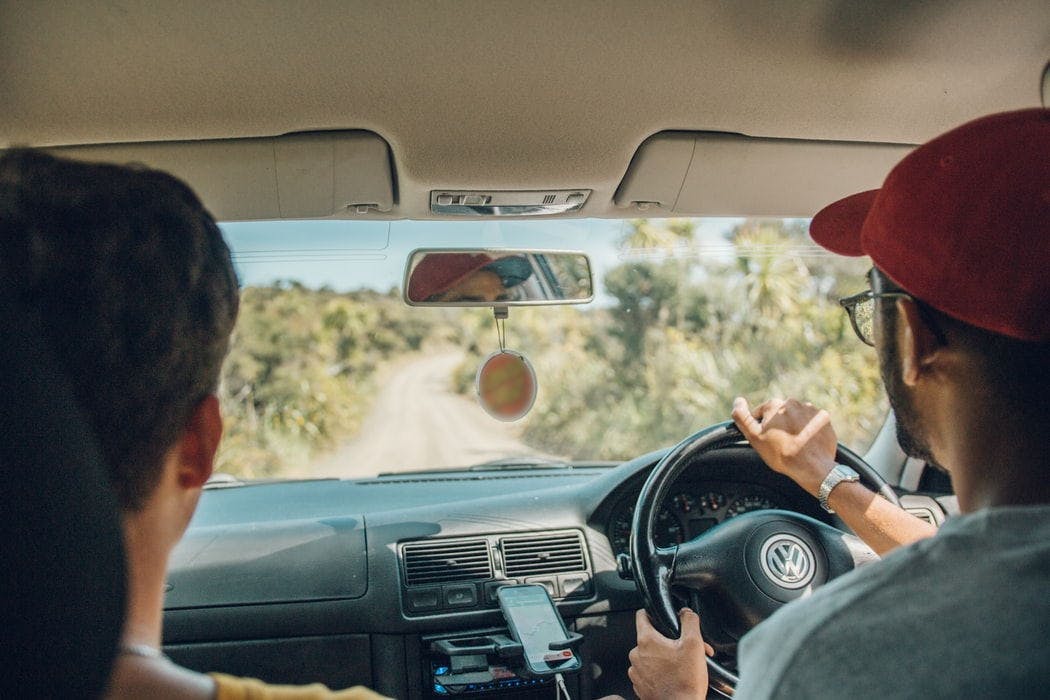
When it comes to learning to drive, there's no one-size-fits-all. People develop skills in a variety of different ways and time frames. You might opt for hourly lessons, an intensive course, or perhaps a mix of the two! Even before you settle on an approach, the big question is often: who is going to teach me to drive? It may surprise you to learn that you don't actually have to take lessons with a bona fide, DVSA-approved instructor. Some people, for example, may prefer to learn with a parent or friend and skip the process of finding and paying an instructor altogether!
We get it—you're a 'do it yourself' type of person. While we love that self-confidence and enthusiasm, we also think you need to be realistic about what earning a licence actually entails. You can't necessarily just drive like your Dad, even if (and often especially if) he's been doing it for years. The DVSA have very particular guidelines regarding how people should drive. As they design and mark the practical test, it's in your best interest to adhere to this approach. So, if your plan is to learn to drive without the help of an approved driving instructor (ADI), you might want to hold off until you hear what we have to say...
Not as cheap as it sounds

There's no two ways about it: learning to drive costs money. Swerving the help of an instructor to take free lessons with someone you know will save you a lot of dough—right? Well, not necessarily. When you pay for the services of a DVSA-approved instructor, you're not just forking out for their expertise.
In most cases, you will also be getting the use of their car, for both lessons and the practical test. This means that the instructor has covered the cost of all necessary insurance. Plus, they're responsible for maintaining the car so that it's fit to be used in test conditions. These necessities ain't cheap—which you'll soon find out if you're left to organise it all for yourself! Furthermore, if you don't invest in professional tuition, you might end up wasting a lot of money re-taking tests. That's because mastering the art of driving and passing the practical test isn't as straightforward as you might think.
The magic formula
In order to earn a licence in the UK, you don't just need to learn to drive, you must learn to drive in the DVSA-approved way. Being able to take a car smoothly from point A to point B won't necessarily cut it! At first glance, this might seem a little unfair—surely knowing how to control a car is enough? The thing is, though, driving is a complex skill. There are lots of rules to understand and a range of potential hazards that you need to be prepared to deal with in a safe manner. The DVSA have carefully designed the practical test to set you up for a successful life navigating the roads of the UK, no matter what is thrown at you.
All qualified instructors have a thorough understanding of the standards set by the DVSA. The rigorous training they undergo also means that they know the most efficient way of taking you from the basic skills, like steering and braking, to more complex areas like roundabouts and manoeuvres. By the time they deem you to be test-ready, you'll be a confident, safe driver who can show off all of the skills the examiner is looking for.
Think about it—you wouldn't head into a GCSE maths exam without being taught by someone with a thorough understanding of the curriculum. In the same way, it's not advisable to head to the test centre armed only with the tips provided by your Uncle Trevor. We're sure he's a nice bloke, but it's unlikely he can match the hard-earned knowledge of a professional ADI.
Safety first

The reason you have to pass various tests to become a qualified driver is that having a car is a big responsibility. Driving carries with it various risks and these are increased when you're still at the learning stage. Most instructors' cars come fitted with dual controls that give them the power to take over, should you make a wrong move.
If you're out driving with a friend or family member and you accidentally do something dangerous, however, they won't be able to take command of the car. Sure, your passenger can try to grab the steering wheel, but braking and accelerating (two of the most important controls) will still be up to you. This puts everyone in the car in a fairly vulnerable position if you're still getting to grips with driving! It's why we recommend only taking practice lessons when you've had at least some professional tuition.
Letting someone else take the wheel
When supervising a learner driver, striking the perfect balance in terms of approach is hard to do without training and experience. ADIs are used to driving with learners. They're prepared for any mishaps and know how to respond. While friends and family may happily offer to provide lessons in their car, it could be a different story once you're out on the road.
Handing over control of your car to a learner driver is, understandably, a little nerve-wracking. You may find that they become cautious or overbearing out of fear that you're going to damage their precious motor. Alternatively, if you end up with someone super laidback who is happy to let you zoom around without much instruction, you're unlikely to get the guidance you need to reach test standard. It's also a recipe for disaster in the form of a car accident!
Even good drivers have bad habits!
The longer you drive unaccompanied, the longer you have to pick up bad habits. While most of us learn to drive to the DVSA's standards, once out on the road alone, people develop slightly different ways of doing things. Now, you can't go completely off-piste—everyone has to follow the rules of the road. But the way you hold the steering wheel, for example, may change as you get older. Most of the time this won't cause any big issues, but it's best to try and avoid deviating too far from test standards.
The point is, if you only take casual lessons with someone you know, chances are you may pick up a few of their bad habits. People who have held a licence for a long time can be overly confident in their abilities. This means they can have a blasé attitude about the 'right way to do things'. As a result, no matter how experienced they are behind the wheel, their influence on your driving might not always be a positive one.
Finding the one

If you're determined to go down the friends and family route, you must make sure that whoever takes you out is the right person for the job. According to the DVSA, anyone supervising a learner driver must:
- Be over 21
- Have held a full licence for at least 3 years
- Not use a mobile phone while doing so
These are not guidelines you can shirk, either. You can be fined up to £1,000 and get 6 points on your provisional (yes—you can get points on your licence before you're even qualified!) for driving without the right supervision. While we're on the topic of rules, make sure you display L-plates on the car whenever you are driving.
Thinking about meeting in the middle and paying someone who isn't qualified but has a lot of experience supervising learners to take you out? Not so fast. It is illegal to exchange money for driving lessons with anyone who is not a DVSA-approved instructor. You might think your mate deserves a few quid for putting up with your terrible parking skills, but you'd be breaking the law! So, if you're parting with cash, make sure it's going to someone with the right credentials.
Learning to drive without an instructor: The bottom line
Do you actually need to take lessons with a trained instructor? Legally, no. Is it recommended? Yes. You just can't beat the teaching experience and deep understanding of DVSA requirements that a qualified instructor provides. For the best chance of becoming a great driver and passing the test quickly: do both! In other words, work with a qualified instructor and take practice lessons on the side. Now that's a recipe for driving success!
Already spent a lot of time learning to drive without an instructor and not sure where to go from here? No need to fret! You're the perfect candidate for a refresher course. This gives you the opportunity to spend a few hours with an experienced ADI, during which they'll assess your driving and get you test-ready. To access to a top notch instructor or discuss your options in more detail, simply give PassMeFast a ring on 0333 123 4949.
Learning to drive without an instructor FAQs
Can someone teach me to drive in my car?
If you have your own car, you might be able to take driving lessons in it rather than using another car. The most important thing is to make sure you’re fully insured as a learner driver. Some driving instructors will be happy to teach you in your own car, so if you’ve got one, it’s worth asking. You can also be taught by anyone over the age of 21 who has been driving at least 3 years.
Can you learn to drive without a driving instructor?
While driving lessons are important, it’s worth using your own car to get some private practice if you can. You can be supervised by anyone who’s been driving for 3+ years, as long as they’re over the age of 21. You might be eager to save costs by having a friend or family member teach you how to drive. It’s legal to do this, but not recommended. A driving instructor knows what examiners are looking for, and even if your family member is a good driver, they could mistakenly teach you bad habits that will cause you to fail your test.
Can my 17-year-old learn to drive in my car?
If your child is learning to drive and you want to teach them in your car, you’ll need to make sure they’re covered by learner insurance. Once that’s sorted, they’ll be able to drive your car under your supervision. You’ll need to be aged 21 or over and have had your licence for 3 years or more. Driving outside of lessons can boost your chances of passing, but it’s important to take professional driving lessons with a qualified instructor. They’ll know what an examiner is looking for and will spot any bad habits you need to overcome before the test date.
Can I have driving lessons at 16 in the UK?
Most people need to be aged 17 or over before they can start driving lessons. However, if you get the enhanced rate of the mobility component of Personal Independence Payment (PIP), you can start your driving lessons from the age of 16. Remember to apply for your provisional licence first, and then you can get started.
PassMeFast will do the hard work for you. We’ll fast-track your driving test, saving you weeks or months of waiting, and find a suitable driving instructor in your area. All you need to worry about is the driving!
If you’re ready to go, you can book online or give our friendly team a call on 0333 123 4949.
Subscribe for driving advice, offers & more
We'd love to let you know about our courses, news and offers via email. You may unsubscribe at any time.
Star Genie Limited trading as PassMeFast. Company number 10093359
Copyright © 2024 owned by Star Genie Limited
PassMeFast, Blue Tower, MediaCityUK, Salford, M50 2ST

